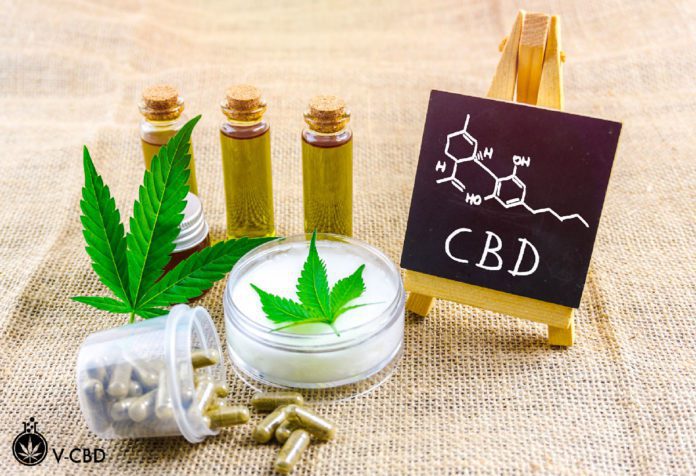At least in the United States, cannabis culture is all over the place. On the West Coast, marijuana is widely accepted and available in abundance from licensed dispensaries, but legalization efforts don’t seem to be as effective in the Midwest and East, where few states have decriminalized and legalized the drug. Worse, the Federal Government has not shifted their stance on cannabis, considering it a dangerous, schedule I drug that cannot be sold, possessed or used without legal consequences. As a result, information about cannabis and cannabis products is exceedingly varied, and often even those who support the drug are suffering from misinformation.
CBD is experiencing notable popularity, but as it grows in visibility, pernicious myths and misinformation about CBD seem to be spreading. Here are a few common misunderstandings about CBD — and the truth, which you can use to better inform those around you.
CBD Is Always Legal (or Always Illegal)
CBD is the most prevalent non-psychoactive cannabinoid, which is to say that it alone will not get you high. As a result, the U.S. Federal Government doesn’t have rules regarding CBD, which essentially means it is up to states to determine how they will handle CBD within their borders.
Most states haven’t taken the time to develop strict regulations regarding CBD, and thus, CBD is legally bought and sold with minimal (if any) oversight in much of the country. However, some places have started to take notice of the CBD market and make rules to control manufacturers, sellers and buyers. For example, there are many states where it is illegal to commercially produce and sell CBD edibles; many states require CBD to be produced from licensed growers within their borders; many states have a minimum age for purchase; and some states maintain guidelines for testing and packaging labels. Meanwhile, Idaho, Iowa and South Dakota ban CBD whole-cloth.
Though CBD is a cannabis product, it is not illegal in the same way marijuana and THC are — but neither is CBD legal and unregulated everywhere. It is important to know the CBD laws in your area, so you can buy CBD safely and without fear of breaking the law.
CBD Doesn’t Do Anything
The current fervor for CBD feels like so many health crazes of the past — turmeric, green tea, celery juice and even patent medicines of the 19th century like cocaine-laced sodas and radium. After all, CBD comes from a controversial source, and many of its effects aren’t supported by a wealth of scientific evidence — at least, not yet. One of the most common attacks on CBD is that it doesn’t do anything and that CBD users are wasting their money.
It is true that CBD isn’t as well-researched as medicines that are more widely available, like ibuprofen or Benadryl, but that is largely due to the unavailability of CBD for study until the most recent decade. Since states have passed regulations allowing for the cultivation of cannabis and the legal sale of cannabis products, researchers have enjoyed greater access to the substance, giving them greater opportunity to learn about its effects. Admittedly, only a few studies have been published as yet, but most show promising results that point to CBD’s effectiveness as a health aid in certain circumstances. For example, the following effects have been proven in some capacity by science:
- CBD reduces the frequency and intensity of seizures.
- CBD reduces inflammation and manages the experience of pain.
- CBD soothes skin conditions better than topical steroids.
- CBD limits stress and anxiety, especially in those suffering from anxiety disorders.
However, it is important to remember that any medical treatment, including CBD, is not without the risk of side effects. A small number of CBD users report light-headedness, drowsiness and low blood pressure, and there is some indication that high doses of CBD can result in liver damage. No medicine, including CBD, is without negative effects, but for most users, the benefits outweigh the small risk of side effects.
CBD Doesn’t Have THC
It is common to believe that all CBD products are totally pure, bereft of any contaminants that might have unwanted effects. This is particularly true when it comes to THC; after all, if you wanted traces of THC in your CBD, you would probably just purchase marijuana, right?
Actually, most CBD products on the market have some THC content, and some intentionally leave in quite a bit of THC. There are two main reasons for this:
- It is difficult and expensive to remove all THC, and
- Removing all THC can compromise the quality of the CBD.
Some researchers believe that CBD (and all cannabinoids) benefit from what they call the Entourage Effect — the concept that cannabinoids and terpenes provide enhanced effects when working in concert than when separated into different products. There is conflicting evidence for the Entourage Effect, but full-spectrum and broad-spectrum CBD products are likely to contain some THC as well as cannabis terpenes.
Wherever you live and whatever your stance on CBD or cannabis in general, it is important that you base your opinions on facts. What we know about CBD will continue to grow and change in the coming years, and if you stay committed to the latest news from the scientific community, you should be able to thwart the spread of misinformation about CBD.
